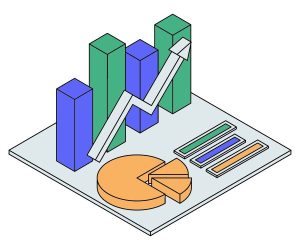How to Become a Business Intelligence Analyst

The Top 6 Ways To Make Your Career A Success
Business intelligence analysts are essential to running any organization efficiently. They use data to make strategic decisions and understand how the business operates.
Although it can be a challenging career and requires plenty of patience, the rewards are worth it! Here are 6 tips on how you can become a successful business intelligence analyst.
1. Develop your analytical skills

If you want to be successful as a BI analyst, you’ll need to develop essential skills like strong problem-solving and analysis skills, as well as a thorough understanding of business metrics and data visualization.
This will help you not only understand the business challenges you’re looking at but also help you come up with solutions that are accurate and relevant. In order to do this, you can take business analyst courses to get a broader understanding of how different business functions work.
This will give you insight into how other departments and companies in general operate and help you develop a more complete picture of the challenges your company is facing.
2. Build your network
Many organizations prefer to hire business analytics talent within their own ranks, but it’s never a bad idea to look externally as well. If you don’t already have connections within your industry and with other companies, building a network will show potential employers that you’re eager to learn and have the right skills for the job.
Also, you never know who you might meet at a networking event who can help you find a job or make a new career connection. If you already have a network, try expanding your reach. Reach out to people in other industries and find ways to connect with them, like joining professional organizations or educational institutions. This will keep you busy and active and could lead to new career opportunities.
3. Develop an understanding of business metrics

Business intelligence analysts often spend a lot of time looking at data, so it’s critical that you understand how to read it. To begin, you’ll want to make sure you know what data is and why it’s important. A lot of data is collected for a specific purpose, like recording the sales of individual products or analyzing how customers use a website.
When you don’t understand the data’s purpose, it’s easy to come up with incorrect conclusions. To start, you’ll want to learn how to identify types of data. Common types of data include financial databases, spreadsheets, and Tableau. You’ll also want to learn the difference between structured and unstructured data.
4. Find a role that specializes in data analysis
There are a lot of different types of businesses, and each one presents different challenges. If you want to work in a field that’s related to business intelligence, you would be better off working for an organization that specializes in data analysis.
This can help you gain hands-on experience that’s related to your chosen field. It also helps you to be more confident in your abilities and get used to the daily challenges you’ll face as a BI analyst.
There are many organizations that offer positions that are related to data analysis. Some of the best options include consulting firms, research institutes, and technology companies. If possible, try to work for an organization that’s related to your field of study, so you can get the experience you need to succeed as a business intelligence analyst.
5. Get certified in data analysis and reporting

As you get more advanced in your career, you may want to consider getting certified. Interpreting data and finding actionable insights can be challenging even for experienced professionals.
Having certification can help you to make sure that you’re performing at the highest level and staying on track with your career goals. There are a variety of data analysis certification options available, from industry-specific certifications to more general-purpose certifications.
Some of the more common certification options for business intelligence analysts include Certified Business Intelligence & Data Analyst (BIDA) and the IBM Data Analyst Professional Certificate. These certifications can be useful for employers, who can verify that the professionals they are considering for a position are indeed certified.
6. Don’t stop learning and growing
You can never stop learning, no matter what your career might be. As you progress in your career, you can always try to take classes that will help you to stay on top of your game.
You could also consider enrolling in industry-related conferences and events to meet other like-minded professionals and learn from their experiences. In addition to keeping up with your knowledge, you should also try to stay up-to-date with the latest industry trends.
Conclusion
If you have an analytical mind and enjoy crunching numbers, then becoming a business intelligence analyst might be the right career for you. As a business intelligence analyst, you will play a key role in helping your company run more efficiently.
You will work directly with the executive team, analyzing big data from various sources and coming up with actionable recommendations on how to improve company processes.
The key is to develop your analytical skills, build your network, and find a role with an organization that specializes in data analysis. Once you do this, you’ll be on your way to becoming a successful business intelligence analyst.



Related Business
Business Analytics vs Data Analytics
Business Intelligence 101: Master BI Technology
How To Advance Your Career in Tech
10 Tips To Improve Your Career Development [Infographic]
What Is Your Number? 7 Careers That Use Numbers
Enterprise Architect Job Description – Roles and Responsibilities
What Is Digital Transformation and How It Can Help Your Business
How to Become a Financial Analyst: The Basics